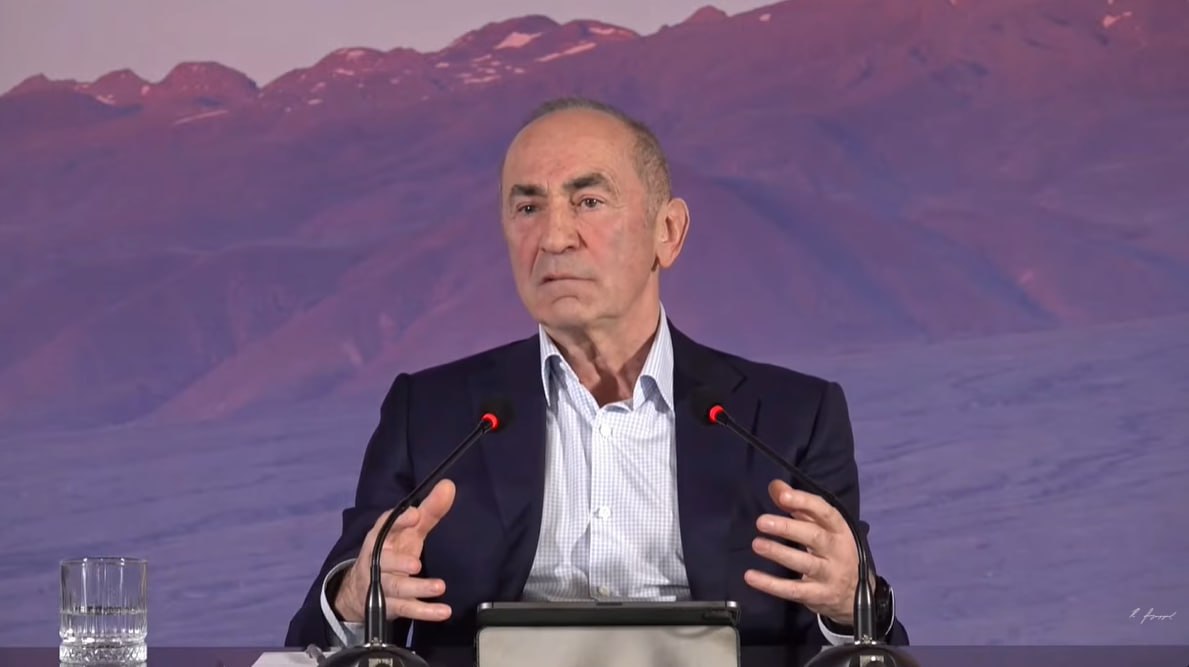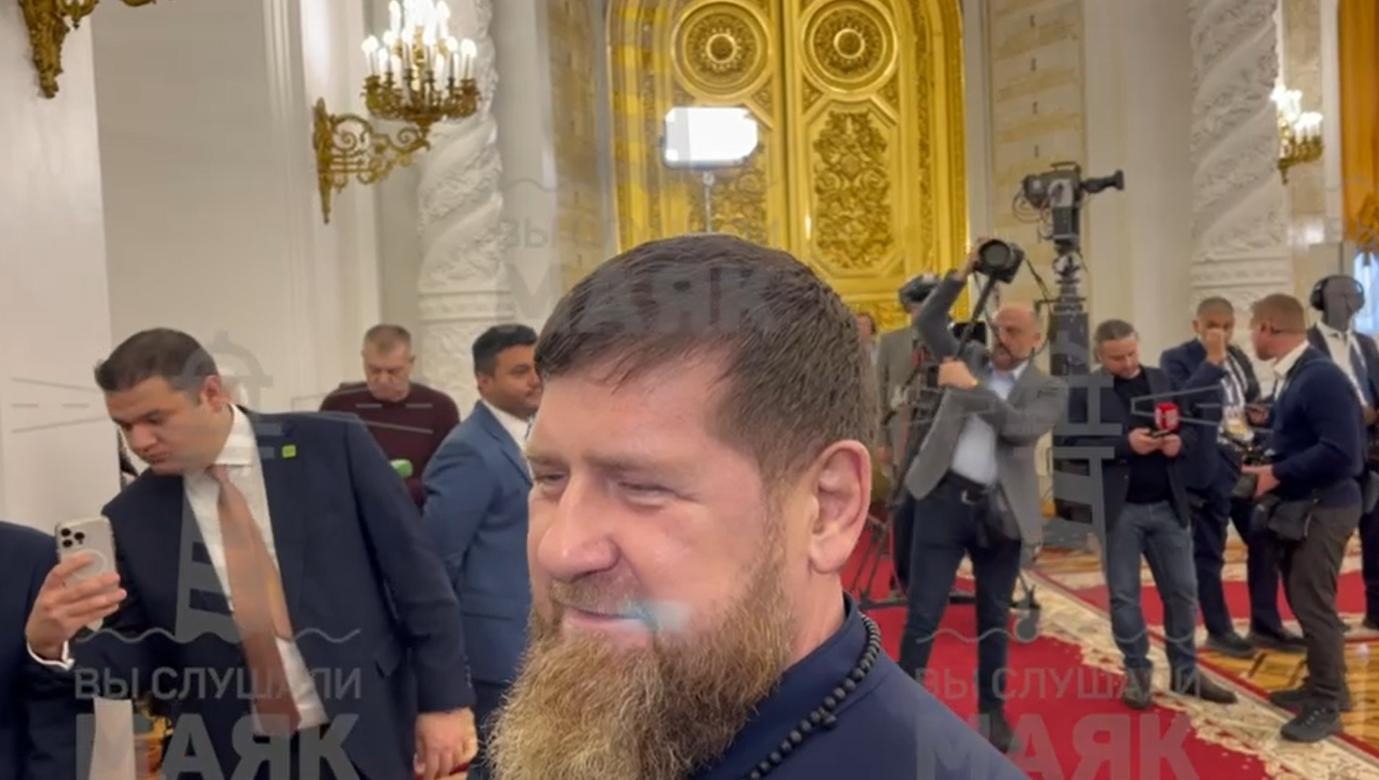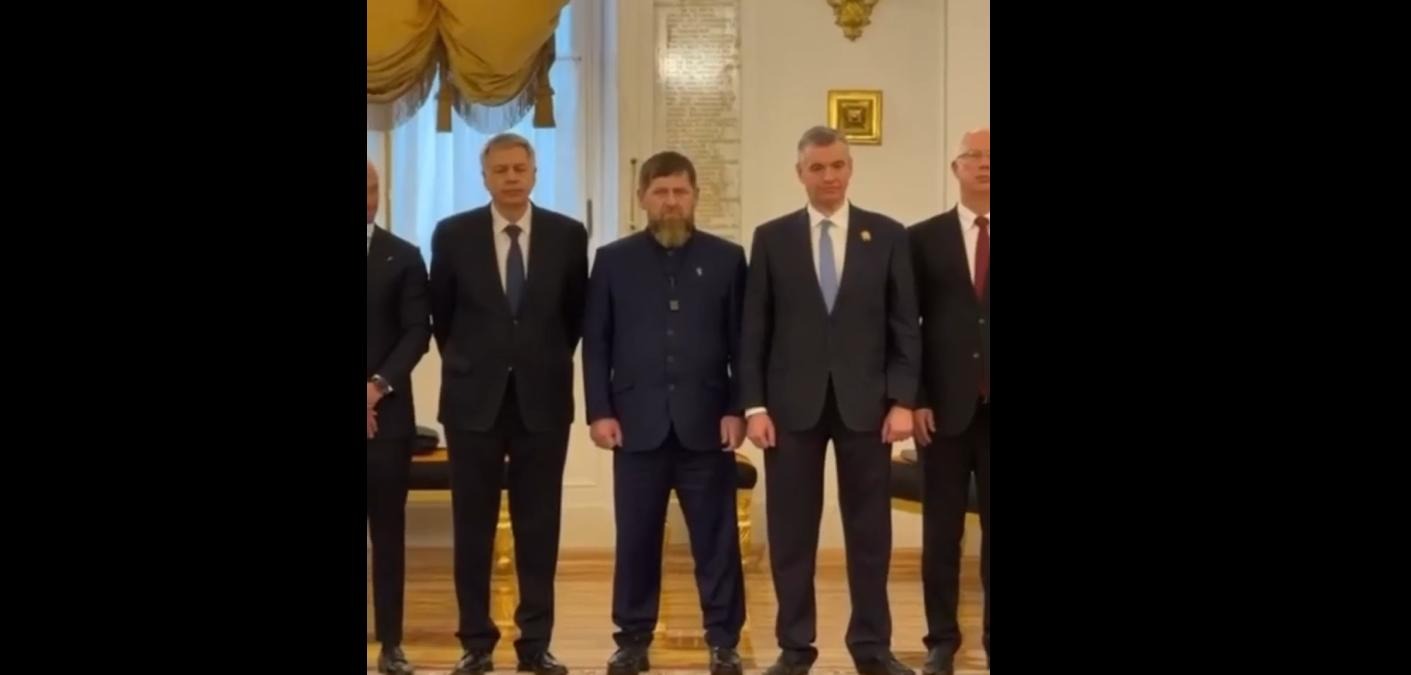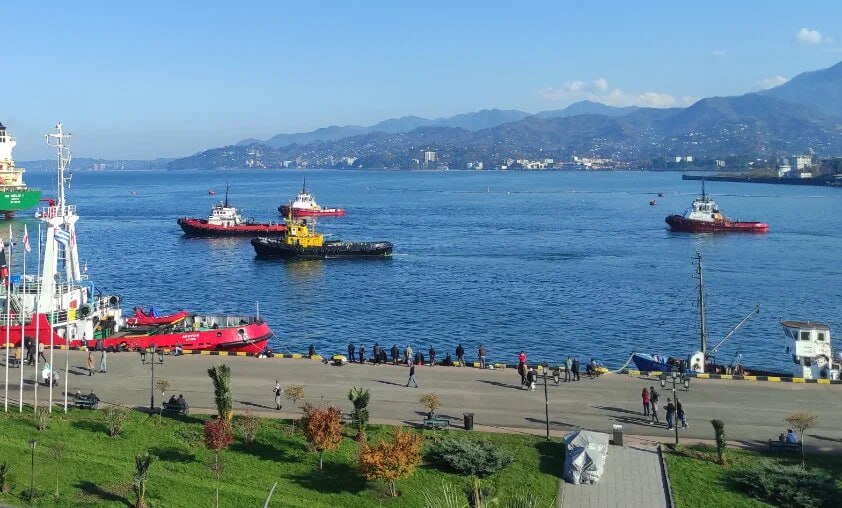Former Armenian President Robert Kocharyan warned against the current government's flippant attitude toward possible harsh responses from Moscow. He believes the authorities fail to grasp the scale of the potential impact Russia could have, including tariff revisions and export blockages.
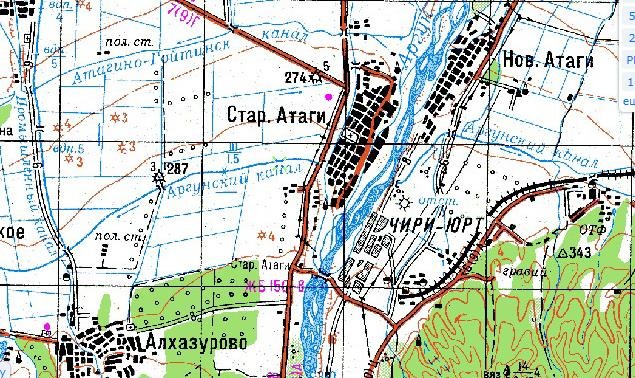
October 13, 2001
***
On the night of October 13, at the 12th station in the Oktyabrsky district of Grozny, a shell fired from a self-propelled gun hit a house. As a result of the explosion, the owner of the house, Gilani Zaurbekov, died. His wife, Malika Zaurbekova, born in 1960, was seriously injured. – her leg was torn off. Their niece, Tamila Valerievna Batukaeva, born in 1990, was also wounded.
Neighbors claim that the shell was fired from the direction of the military unit stationed on the Karpinsky Kurgan.
***
At the bus station in the station. Ordzhonikidzevskaya resident of the village of Alkhazurovo (lives there at the address: Molodezhnaya St., 4) Avadi Makhmudovich Tunzhukhanov, born in 1942, learned about the looting of his property. This happened during the “cleansing” operation, which was led by the military commandant of the Urus-Martan district, Major General Heydar Gadzhiev. Fellow villagers said that military men visited Tunzhukhanov’s yard and said they were conducting a search. At the same time, they did not allow anyone into the yard - neither neighbors, nor representatives of the local administration. Back on October 7, Avadi Tunzhukhanov and his wife left for Ingushetia, where he was going to undergo a medical examination, and knew nothing about what had happened.
Returning to the village, he discovered that the door of the house, which was locked, had been knocked out along with the jamb. The lock of the inner door also turned out to be “opened”, but with the help of an automatic weapon. Everything in the rooms was scattered. Things were scattered on the floor, and furniture was either moved or overturned. The owners of the house were missing many household items. Apparently, the military took them with them. After putting the premises in order, it was discovered that electronic devices and accessories had disappeared: an electric wall clock, a Batzipd TV, a voltage stabilizer, a video recorder and 10 video cassettes, a two-cassette tape recorder, a magnifying glass for viewing photographs; household appliances: pressure cooker, electric mixer; kitchen utensils: Tefal frying pan, tea set of 20 cups, four plates, the same number of trays and four pans; bedding: four pillows, two mattresses, ten sets of sheets. The military became the owners of various clothes: three men's suits, four pairs of trousers, three leather jackets and a mink hat; products: five bags of seed potatoes and two bags of flour. They also took possession of a balalaika, boxing gloves and other property of the Tunzhukhanovs.
Upon the robbery of his house, Avadi Tunzhukhanov contacted the law enforcement agencies of the Urus-Martan district and the Special Representative of the President of the Russian Federation for the observance of human and civil rights and freedoms in the Chechen Republic, Vladimir Kalamanov.
***
On the Rostov-Baku highway, immediately after the Argun bridge, a minibus (RAF car) traveling from Grozny to Khasavyurt was fired upon. The fire came from a passing military convoy, which consisted of Ural trucks and an armored personnel carrier. There were 13 people in the taxi, all of them were injured to varying degrees of severity. Four are heavy.
The victims could not get out without outside help. It was given to them only after about 15 minutes: the people gathered around were afraid to approach, fearing that the car under fire might explode. Among those who rushed to the rescue were military personnel. They drove up to the scene of the events in an UAZ. On it, one of the injured women was taken to the hospital.
The names of some of the minibus passengers who were injured: Khavra Sakhabova, born in 1959, resident of Grozny; Rezeda Sakhabova, born in 1965; Ali Khalimov; Zamir Nasagav, born in 1969; Roza Gaaeva, born 1964; Madina Mantaeva, born in 2000
Later it became known that the driver of the minibus died from wounds received during the shelling. His name is unknown to the Memorial Human Rights Center staff.
***
At the village A protest meeting took place in Starye Atagi, in which more than 300 people took part, including those who came from nearby settlements: Chiri-Yurt, Duba-Yurt, New Atagi, Chechen-Aul, Dachu-Borzoi, Gikalovsky, Kurchaloy, Alkhazurovo, Shali and etc. Those gathered expressed outrage at the ongoing violations of the rights of local residents. A little later, the Russian military - the main target of criticism from the protesters - blocked some of the roads leading to the protest site. Because of this, the funeral procession heading to Starye Atagi from neighboring Duba-Yurt was unable to pass through the checkpoint. The funeral had to be held in the village of Novye Atagi.
***
In the village of Yandara, from a Chechen refugee camp, police officers, without presenting an arrest warrant, took away the commandant and human rights activist, RCFS employee Imran Ezhiev, who was taken to the police department in the village. Ordzhonikidzevskaya and were held there until October 25. During this time he was never questioned.
Initially, Imran Ezhiev was accused of involvement “in organizing terrorist attacks in Ingushetia.” However, this was soon forgotten. In the following days, police officers began to tell the relatives of the detainee and his lawyer that the arrest was made at the request of the Shali prosecutor's office of Chechnya.
On October 25, certificates were brought from the prosecutor's office and the Shalinsky district VOVD, refuting this statement, but by this time the human rights activist had already been handed over to unknown people in civilian clothes. Even the lawyer was not notified that they were going to hand over Imran Ezhiev to someone. The transfer procedure took place with gross violations of procedural norms: a transfer order was not drawn up and signed indicating the exact place where it was necessary to deliver, and no criminal case was initiated within the framework of which such actions were still possible. Therefore, for several days neither friends nor relatives knew where the detainee was. Then it turned out that he was simply “fused” into other hands.
As it turned out, no order was received from Chechnya to Ingushetia; the detention of the human rights activist was solely the initiative of the Sunzha police officers of the Republic of Ingushetia. He was kept in a temporary detention center in the Leninsky district of Grozny. Trying to rescue him, his relatives and lawyer were forced to collect certificates, extracts, and other documents from various authorities, from which it followed that the detainee was not a criminal, but a law-abiding citizen. Imran was released a few days later.
This is not the first detention for Imran Ezhiev. The first time this happened was in mid-August 2000 at the Kavkaz-1 checkpoint on the way from Ingushetia to Gudermes. There was supposed to be a meeting between the commandants of the tent camps and the military with the head of the Chechen administration, Akhmad Kadyrov. At it, by his own admission, Imran was going to talk about the impossibility of returning refugees home until a complete cessation of shelling of populated areas, seizures of people and “cleansing operations”, but was detained while crossing the administrative border between the two republics. The military explained this by saying that the Ingush police allegedly put him on the wanted list, but for some reason they took him to the commandant’s office of the Achkhoy-Martan district of Chechnya.
A month later, the human rights activist was detained again. At the RCFS office, which is located in the city of Karabulak, the local police arrived and conducted a search unauthorized by the prosecutor's office. Law enforcement officers took away all the office equipment in the office, and unfoundedly accusing its manager of having connections with Aslan Maskhadov, they took him to the city police department. Thanks to the noise raised by human rights organizations in the media, the very next day Imran Ezhiev was freed. However, the police returned the office equipment only ten days later. It turned out that all the information on the computer was destroyed.
Imran Ezhiev is the chairman of the regional branch of the RCFS. In its press releases, the organization promptly reports facts of unmotivated detention of people, extrajudicial executions, and how residents of Chechnya, driven to despair by the illegal actions of the Russian army and police units, are trying to defend their rights and freedoms using non-violent methods.
From the book “People Live Here”, Usam Baysaev, Dmitry Grushkin, 2006.
